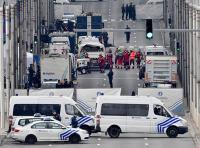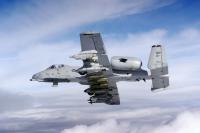-
Brussels suicide bombers were in U.S. terror suspects database

U.S. security agencies had the names of the two suicide bombers who attacked Brussels airport in their databases as potential terror threats. The revelation would raise even more questions about the competence and preparedness of the Belgian security authorities, which described the men merely as petty criminals who were not on the radar od the Belgian security counterterrorism agencies. The revelations also raise questions about the scope and quality of intelligence information sharing among Western countries.
-
-
Terrorists have been targeting transportation hubs for decades

More than 7,400 terrorist attacks worldwide between 1970 and 2014 targeted some form of transportation, including airports and aircraft, representing 5.3 percent of all terrorist attacks. More than 460 targets of terrorist attacks between 1970 and 2014 were airports, representing 6.4 percent of all transportation targets. More than 130 targets of terrorist attacks between 1970 and 2014 were subway systems, representing 1.9 percent of all attacks on transportation targets.
-
-
U.K. could lose access to terrorism, crime databases if it leaves the EU: Europol

Rob Wainwright, the director of the EU’s police agency Europol, said that if Britain left the EU, it could lose access to important databases of terror and criminal suspects needed to fight ISIS. Wainwright said databases provided “daily” benefit to UK police in protecting borders. Leaving the EU would put intelligence cooperation in danger, he said.
-
-
Danish government considering plans to strip radical imams of citizenship
Denmark’s government is considering a proposal by an anti-immigration party to strip imams who preach ideas contrary to the Danish constitution of their citizenship. The proposal is part of an effort to expel outspoken radical imam Abu Bilal Ismail. Ismail is a leading imam at the Grimhoj mosque in the city of Aarhus, has openly called for the killing of Jews, and also the stoning of adulterous women and the killing of apostates.
-
-
The bitter fruits of alienation: Belgium’s struggle is the problem of our age
It is tempting to see the current waves of terrorism as the result of the sudden invasion of militant Islam. But in many respects the origins of the current violence remain just as local as the previous manifestations of terrorism in Western Europe – for example, the IRA or ETA. The sources of the current terrorist violence lie in the willingness of young men of immigrant populations to turn the quasi-criminal expertise learned in their formerly marginal lives to more political and violent ends. The problems that we confront today are not going to go away soon. The current terrorism is so amorphous and so shallow in its political affiliations that it may fade away, as those drawn towards it today are attracted to the more immediate opportunities of tomorrow. But it is more likely that the breaking up, arrest, and imprisonment of particular networks of individuals will simply be replaced by other such groups, who will similarly find in particular languages of Islam the vehicle for their angers and their emotional rejection of wider society. Putting back together Europe’s social contract might take longer than any of us would like to think.
-
-
Religious and civic rights were important components of a “Muslim nation”
Prophet Muhammad believed that freedom of religion and civic rights were important components of a “Muslim nation,” according to an analysis of the prophet’s covenants with Christians. The researcher argues that the covenants can be used to develop a stronger democratic partnership between Muslims and Christians in the Islamic world and elsewhere.
-
-
Massive U.S. attack in Yemen kills “dozens” of AQAP terrorists

A massive U.S. airstrike on a terrorist training camp in Yemen has killed dozens of terrorists belonging to al-Qaida in the Arabian Peninsula (AQAP). This is the second such attack in as many weeks. Military analysts note that the two strikes, in which more than 200 terrorists have been killed, signal a different, if unstated, approach by the Pentagon. Until recently, U.S. strikes on terrorist facilities killed relatively few terrorists.
-
-
Islamist militants planning “near-term attacks throughout Europe”: U.S.
The State Department has issued a warning to Americans planning travel to Europe, saying that Islamist terror groups are planning more attacks throughout the continent. In a warning unusual in its scale, the State Department said people should exercise vigilance when in public places or when using mass transportation.
-
-
Brussels attacks: a throwback to pre-9/11 terrorism
The terrible scenes in Brussels following a terrorist attack now claimed by Islamic State are a reminder of just how vulnerable airports can be. The most likely and realistic response is increasing security presence around airports with a greater number of random checks. There is no foolproof solution to this security issue, though, and that’s something governments are going to have to admit. Terrorists have the ability radically to disrupt transportation systems, potentially causing loss of life and economic damage in the process, and there is little that can be done to stop them. For some time, terrorists pursued the much more difficult task of attacking aircraft while largely ignoring easier targets. The attack in Brussels shows the reality of renewed efforts against “soft targets” with the potential to bring about chaos to transportation systems.
-
-
Brussels attacks: how radicalization happens and who is at risk

As they recover from the shock of the attacks in Brussels, people are asking why this happens, and who the people carrying out these suicide missions are. That such attacks could be launched from inside a European country once again calls attention to a serious crisis: the radicalization of citizens outside the Middle East by extremist groups. Can we expect ever more people around the world to be radicalized to join ISIS? The outlook is mixed. Despite the successes of its recruitment and radicalization campaign since 2011, recent media reports show that IS is struggling to integrate different groups of foreign fighters into its combat forces in the Middle East and North Africa, raising the prospect that competing loyalties could fracture the group and undermine its ability to project an appealing recruitment message. As far as the fight against IS recruitment goes, this is a ray of hope. But there’s plenty of bad news too.
-
-
Ted Cruz: Cancelled NYPD’s Muslim surveillance program could prevent terrorist attacks
Presidential candidate Ted Cruz criticized New York Mayor Bill de Blasio for shutting down the NYPD’s Muslim surveillance program. In the wake of the Brussels terrorist attacks, Cruz. suggested that to prevent such attacks in the United States, the police should patrol Muslim communities more heavily – and offered the NYPD program as an example of how such surveillance should be done. In 2014, the New York Police Department acknowledged that its surveillance program did not lead to any terror investigations. Police were not able to find a single lead.
-
-
More Americans in the last 25 years killed by far-right extremists than by Islamist terrorists
Over the last twenty-five years in the United States, those inspired by al-Qaeda and its associated movement (AQAM) have killed nearly seven-and-a-half times more people than far-right extremists have killed in one-fifth as many incidents. However, if you remove two outlier events — the 9/11 terrorist attacks and the Oklahoma City Bombing — far-right extremists (FRE) have killed nearly four times as many people as AQAM extremists.
-
-
34 killed, 151 injured in Brussels terrorist attacks
Three explosions — two of them suicide bombing attacks — earlier this morning (Tuesday), two at the international airport and a third in a subway station downtown, left at least thirty-four people dead and injured 151. Nineteen people were killed at the airport and fifteen in the subway bombing. Another explosive device was found at the airport and removed before it could go off. Brussels has been placed under a lock down, with all flights in and out of the city cancelled, and all train and bus stations hut down.
-
-
Hezbollah threatens it will attack Israel’s nuclear facilities in future war
Hassan Nasrallah, Hezbollah leader, on Monday threatened that in the event of another war between Hezbollah and Israel, his Iran-supported Shi’ia Lebanese militia will strike all targets in the Jewish state “without any limits.” He added: “If the Israeli army escalates its aggression against Lebanon, Hezbollah will strike all the strategic targets in the occupied Palestinian territories, including the nuclear facilities.”
-
-
John Kerry to meet leaders of Colombia’s FARC guerillas in Cuba today
Secretary of State John Kerry will meet today (Monday) in Havana with the leaders of the Colombian Marxist guerrilla group Revolutionary Armed Forces of Colombia (FARC). FARC has been fighting successive Colombian governments since the early 1960s, and is in control of an area the size of Switzerland in the mountainous jungles of central Colombia. In 1997 FARC has been designated a terrorist group by the State Department. Since last fall, the Colombian government and FARC, with the support of the UN, have been negotiating a peace pact.
-
More headlines
The long view
How Male Grievance Fuels Radicalization and Extremist Violence
Social extremism is evolving in reach and form. While traditional racial supremacy ideologies remain, contemporary movements are now often fueled by something more personal and emotionally resonant: male grievance.
